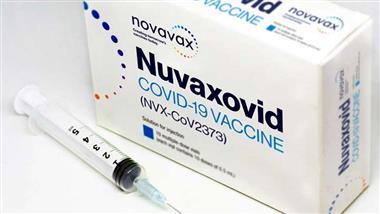by Dr. Joseph Mercola, Mercola:

STORY AT-A-GLANCE
- September 11, 2023, the U.S. Food and Drug Administration approved reformulated monovalent COVID shots by Pfizer and Moderna for use in individuals 12 years of age and older. They also issued emergency use authorization (EUA) for use of the reformulated jabs in children aged 6 months to 11 years
TRUTH LIVES on at https://sgtreport.tv/
- October 3, 2023, the FDA issued EUA for an updated non-mRNA COVID vaccine, Nuvaxovid, a subunit protein vaccine made by Novavax. The spike protein is produced inside moth cells. According to health authorities, this may encourage vaccine uptake among those who are “hesitant about the mRNA vaccines”
- The updated COVID shots correspond to the Omicron variant XBB.1.5., which was the dominant variant in the U.S. for most of 2023, but which has since been replaced by other variants
- High-risk individuals who were recommended to get additional doses will have received as many as six mRNA injections at this point — a three-dose primary series in 2021, two boosters to the primary series during 2021/2022, and one bivalent booster in the fall of 2022. The latest reformulation for XBB.1.5 will be the seventh
- Americans are tired of the endless boosters and have come to recognize both their ineffectiveness and dangers. Only 2% of the population has opted to receive the latest shot, and a recent study found the most commonly reported reason for not having been boosted was a prior SARS-CoV-2 infection, followed by concern about vaccine side effects, or that it would not protect from against infection
September 11, 2023, the U.S. Food and Drug Administration announced1 it had approved reformulated monovalent COVID shots by Pfizer and Moderna for use in individuals 12 years of age and older. They also issued emergency use authorization (EUA) for use of the reformulated jabs in children aged 6 months to 11 years.2
The updated mRNA injections contain a single modified RNA said to correspond to the Omicron variant XBB.1.5., which was the dominant variant in the U.S. for most of 2023, but which has since been replaced by other variants.
According to authorities, however, this strain is different enough from the strains in any of the previous shots to recommend everyone take it, regardless of your previous COVID jab history.3
Fortunately, most Americans are not falling for the same lies this time around. Most have realized that the shots are ineffective and can cause all sorts of health problems, including heart damage and immune system deregulation. Most people are also tired of the never-ending boosters.
In all, high-risk individuals (such as the elderly and/or immunocompromised of all ages) who were recommended to get additional doses will have received as many as six mRNA injections at this point — a three-dose primary series in 2021,4 two boosters to the primary series during 2021/2022,5 and one bivalent booster in the fall of 2022.6 The latest reformulation for XBB.1.5 will be the seventh in just three years.7
Non-mRNA Shot Authorized as Public Rejects mRNA
Uptake of the new monovalent shots has been disappointing, however. As of October 12, 2023, only 7 million Americans had rolled up their sleeves. For comparison, by October 12, 2022, more than 18 million had received the bivalent booster released that September, and by May 2023, 17% of the population — 56.5 million people — had received it.8
Assuming the U.S. population is 340.47 million people,9 7 million is only about 2.06%. According to CIDRAP News,10 booster uptake is being “hindered by prior infections” and “fear of side effects.” That’s what an October 2023 study11 found. As noted in that paper:
“The most commonly reported reason for not having been boosted was a prior SARS-CoV-2 infection (39.5%), followed by concern about vaccine side effects (31.5%), believing that the booster would not provide additional protection over the vaccines already received (28.6%), and concern about booster safety (23.4%) or that it would not protect from SARS-CoV-2 infection (23.1%).
For themes related to reasons for not having been boosted, those 60 years of age or older were less likely to select items related to knowledge or logistical concerns about the vaccine; while those reporting Hispanic ethnicity were more likely to convey concerns about logistics than those reporting non-Hispanic ethnicity.
Finally, compared to college graduates, those with some college or technical school were significantly more likely to select items related to the risks and benefits of the bivalent vaccine not being clear as reasons for not having been boosted.”
Note how they downplayed people’s concern about vaccine side effects. They separated “concern about vaccine side effects” (31.5%) and “concern about booster safety” (23.4%), which is the exact same thing. Add them together, and 54.9% are skipping further boosters due to fears about their safety.
To Allay Fears, FDA Grants EUA to Non-mRNA COVID Vaccine
The FDA’s authorization12 of an updated non-mRNA COVID vaccine — Nuvaxovid, a subunit protein vaccine made by Novavax — is reportedly part of the strategy to encourage uptake among those who are “hesitant about the mRNA vaccines.”13
The updated Novavax vaccine was authorized by the FDA in early October 2023 for ages 12 and older, regardless of previous COVID jab status. Like Pfizer’s and Moderna’s new shots, the updated Nuvaxovid targets the SARS-CoV-2 variant XBB.1.5, and the FDA is encouraging people to select whichever shot they prefer (mRNA or non-mRNA).14




